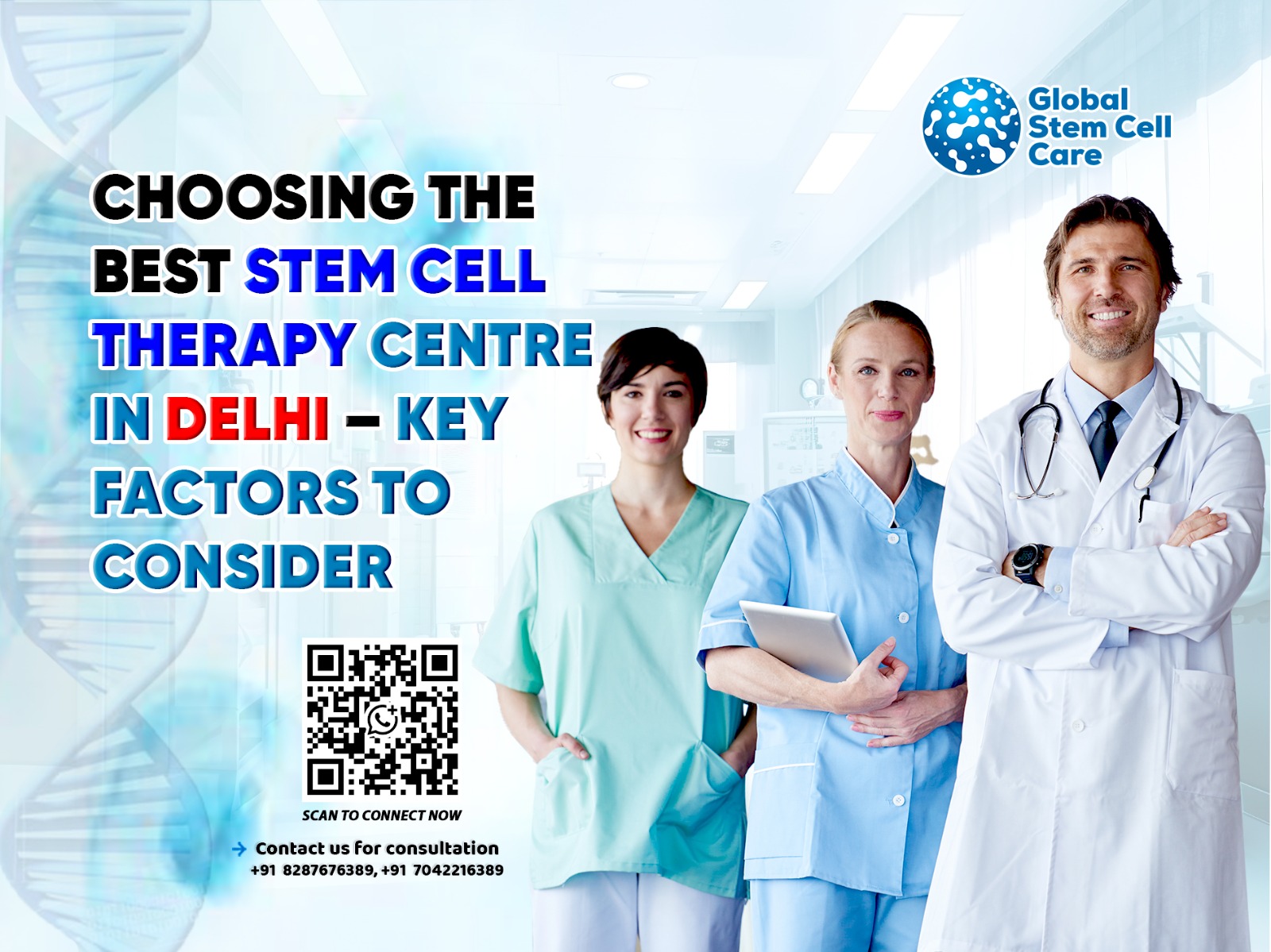Table of Contents
Summary: Stem cell therapy has emerged as a potential alternative treatment for many conditions, such as orthopedic, neurological, and more. Undertaking stem cell treatment in Delhi means advanced infrastructure and highly qualified specialists, making it a perfect destination for this treatment in India. However, choosing the right center can be overwhelming for patients. This blog explores the important points you should consider while opting for a stem cell therapy center.
Delhi has long been renowned as one of India’s top destinations for advanced healthcare. From state-of-the-art hospitals to highly qualified doctors and specialists trained internationally, this city has become a perfect destination for advanced treatment like stem cell treatment. Millions of patients around the world and in India now look forward to Delhi for stem cell therapy for severe conditions, from orthopedic injuries to neurological disorders.
Although the challenge is, how do you choose the right center for undergoing stem cell therapy? For patients who are new to regenerative medicine, it can also be overwhelming to find the right center for treatment. This blog simplifies the journey by outlining key factors to consider before choosing a clinic. Most importantly, it highlights why expert guidance from Global Stem Cell Care can make all the difference in ensuring safety and successful outcomes.
What Is Stem Cell Therapy?
Stem cell therapy is a novel therapy that utilizes your body’s cells to assist with the repair of damaged tissues. Stem cells are abnormal cells with the unique capacity to change and become any type of cell that may be needed, such as bone, muscle, or nerve cells. Because of this unique ability, stem cells may be used to treat a variety of conditions, including orthopedic injury, neurological conditions, autoimmune disease, and trauma.
The goal of stem cell therapy is to initiate the natural healing process and repair tissues from the inside of the body. While ongoing research is still being conducted, the results so far have been positive and have included improvements in patients’ pain, mobility, and overall health.
Accreditation & Certification
Choosing a certified center is the foundation of safe treatment for better treatment. Here are some things to look for:
- Government Approvals: It ensures the center is licensed and authorized to conduct stem cell treatment legally.
- International Recognition: Accreditation from global medical associations signifies that the clinic achieves high standards.
- Ethical Compliance: Certification assures clinics adhere to open and safe policies, reducing malpractice risks.
- Patient Safety Assurance: Accredited facilities practice strict infection control, clean-room environments, and monitoring for quality.
Experience Medical Professionals
The ability of the medical professionals may determine treatment success directly. Look for:
- Specialist Physicians: Seek specialists in regenerative medicine, neurology, or orthopedics, depending on your condition.
- Multi-Disciplinary Team: The integration of doctors, laboratory scientists, physiotherapists, and nurses will render comprehensive care.
- Track Record of Success: Experienced doctors will be more likely to give improved outcomes, as mentioned by patient reviews or published results.
- Ongoing Training: Doctors who are constantly updated with the latest international research on stem cell therapy offer more value.
Treatment Protocols and Transparency
The patient should be well-informed before proceeding to therapy. A good centre will:
- Detailed Procedure: From the harvesting of cells to delivery, each process should be detailed.
- Provide Realistic Expectations: Real clinics stress both probable gains and constraints of the therapy.
- Talk of the Dangers Candidly: Proper centres will mention possible side effects and safety concerns instead of keeping them a secret.
- Related Medical Evidence: Evidence is backed up by research studies, trial results, or patient outcomes.
Patient Support and Aftercare
Stem cell therapy is not a one-time treatment, but it must be sustained. Firm aftercare includes:
- Follow-ups: Regular appointments to track recovery and side effects.
- Rehabilitation Care: Physiotherapy, exercise recommendations, or lifestyle modifications improve outcomes.
- Health Monitoring: Monitoring clinics that track patient health for weeks or months offer safer long-term outcomes.
- Guidance and Counseling: Emotional support and patient education can reduce anxiety and improve treatment compliance
For Expert Guidance
For most patients, comparing clinics, learning about protocols, and assessing treatment choice can be overwhelming. Expert support steps in here. Global Stem Cell Care is a reliable consultancy for patients considering stem cell therapy in Delhi. Their function includes:
- Assisting patients in navigating available treatments.
- Referring them to certified and reputable centers.
- Verifying that clinics adhere to ethical and transparent procedures.
- Offering door-to-door support, from consultation to aftercare.
With their experience, patients are able to cut through the intricate medical environment with confidence and assurance.
The Bottom Line
Stem cell therapy is revolutionizing the treatment of chronic diseases and injuries, and Delhi has emerged as a forerunner in this regard. The success of the treatment, however, revolves very much around the selection of the right centre. Accreditation, qualified doctors, open protocols, up-to-date facilities, and robust aftercare programs are some of the aspects that contribute to the standard of care.
Rather than making this choice on their own, patients can seek the advice of experts. For sound advice, individualized assistance, and access to approved treatment facilities, seek the advice of Global Stem Cell Care. Their well-trained staff makes sure each patient gets safe, ethical, and world-class stem cell therapy in Delhi.
Commonly Asked Questions
Q1. Why should I check accreditation before choosing a stem cell therapy centre?
Ans. Accreditation ensures the clinic follows government-approved protocols, international standards, and ethical practices.
Q2. How do I know if a doctor is experienced in stem cell therapy?
Ans. Look for specialists with experience in regenerative medicine and evidence of successful patient outcomes.
Q3. What role does technology play in stem cell therapy?
Ans. Modern labs, imaging systems, and monitoring equipment improve both the safety and effectiveness of treatments.
Q4. Is aftercare important in stem cell therapy?
Ans. Yes, rehabilitation, follow-up care, and regular monitoring are essential for long-term success.
